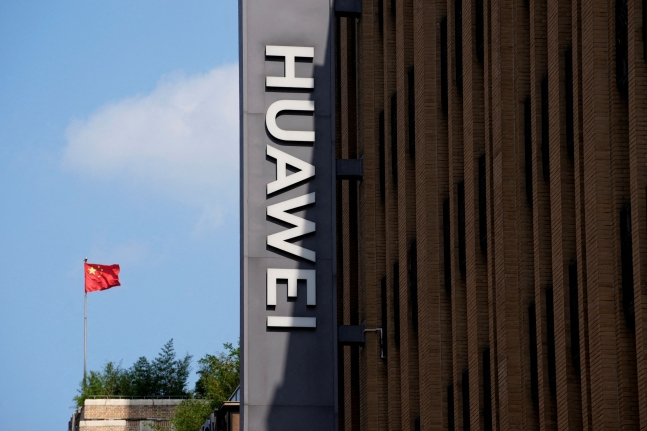Will China's self-sufficient dream in HBM come true?
Korean chipmakers dominating HBM market are skeptical about China catching up
By Jo He-rim
Published : May 7, 2024 - 16:04

With the US imposing strict trade restrictions on China's advanced semiconductors and chipmaking equipment, Beijing has been ramping up efforts to develop home-grown artificial intelligence chips to keep up with the global AI boom.
Recently, the Chinese government and chipmakers have been working together to produce high-bandwidth memory chips, a crucial component in graphic processing units. With the backing of the government, the consortium led by Huawei aims to produce HBM2 by 2026.
Industry sources in Korea, home to top HBM suppliers SK hynix and Samsung Electronics, believe it would be difficult for the Chinese firms to catch up with the advanced chip technology within a couple of years. SK hynix developed the second-generation HBM2 chips in 2016.
"Even with the government providing enormous funding for the project, it would be difficult to catch up to the almost 10-year gap with current players," an industry official said under the condition of anonymity.
"Korean firms have been working on HBM since 2012, and have just started making leaps in the sector in recent years."
The Chinese consortium involves Huawei Technologies and Fujian Jinhua Integrated Circuit, a memory chipmaker under US sanctions. Other chip producers and packaging technology developers are also joining in to produce HBM which will support the Huawei-designed AI processor chips, according to reports.
The Information also reported that the Huawei-led consortium had built at least two HBM production lines, using memory chips from different companies, as a form of internal competition. It added that Huawei would likely be the largest buyer of the HBMs.
ChangXin Memory Technologies, China's leading memory chipmaker, is also reportedly working to secure the crucial equipment for HBM production that isn’t currently subject to US export controls.
The HBM chip market has just begun to see the light following explosive growth in AI applications after OpenAI's ChatGPT was released in late 2022. The vertically-stacked chip promising faster data access with lower energy consumption is used to assist GPU in processing AI functions.
SK hynix and Samsung Electronics currently dominate the HBM market, accounting for a market share of about 47 to 50 percent as of last year. US-based Micron Technology takes up the rest of the market share, according to market tracker TrendForce.
The cutting-edge memory chip appears to be cementing its presence in the market along with the growth of AI applications. TrendForce said Tuesday that HBM is expected to take about 30 percent of total DRAM sales next year.
Industry watchers predict China's impact on the HBM market will be minimal, but it will be important to monitor the development considering that China accounts for more than 30 percent of Korea's total semiconductor exports.
“It is too early to identify the potential influence China would have on the HBM market. But we are skeptical about CXMT succeeding in developing the delicate technology required to produce HBM,” an industry official said under the condition of anonymity.
“CXMT has been saying it will master the production of advanced DRAM chips for the past decade, but it still struggles with conventional DRAMs. I believe it would be difficult for China to catch up to the HBM technology of current players in 4-5 years.”
According to the Korea International Trade Association, 36.6 percent of South Korea's total chip exports go to China. The total amount is $36.1 billion, which is more than the total amount combined for the US, Europe and Japan.
In 2022, China consumed about 40 percent of all chips made globally, making it the biggest buyer of semiconductors. Only 12 percent of this amount was self-sufficient, according to Global Data.
"China is slow but is consistently investing and working to develop advanced chip technologies. Once it catches up with conventional semiconductors, and also AI chips, Korean chipmakers would lose their benefit in the market," an industry official said.
Both SK hynix and Samsung Electronics are expected to start mass production of the fifth generation 12-stack HBM3E this year.



















![[Today’s K-pop] Treasure to publish magazine for debut anniversary](http://res.heraldm.com/phpwas/restmb_idxmake.php?idx=642&simg=/content/image/2024/07/26/20240726050551_0.jpg&u=)